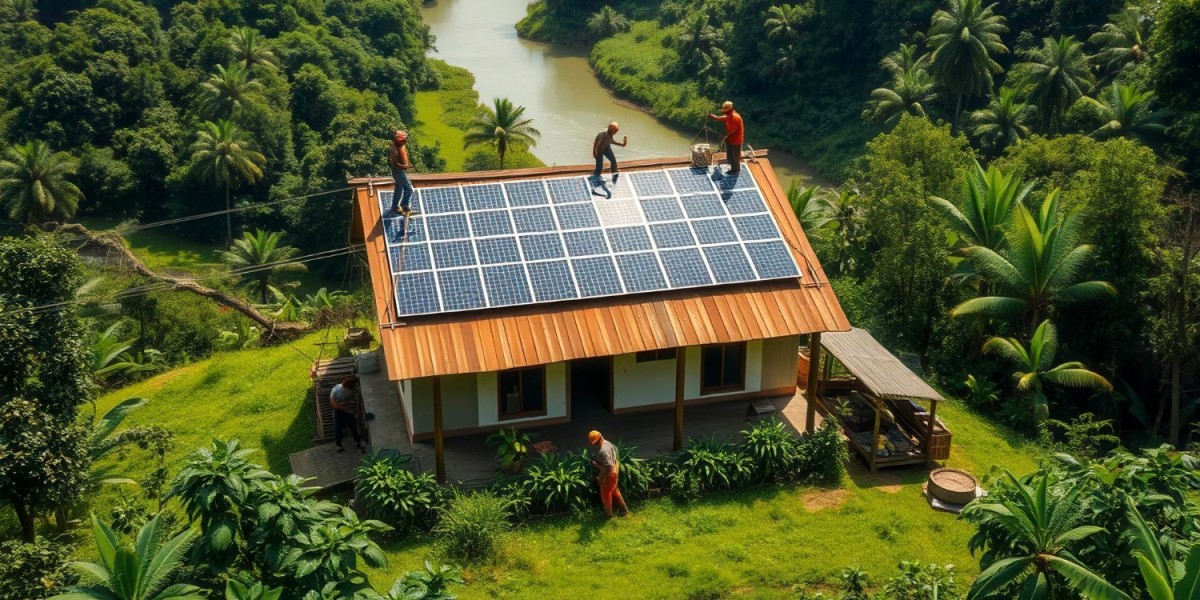Unfortunately, many people rush into solar projects without proper planning or guidance, leading to avoidable mistakes that can reduce system performance, increase costs, or even cause long-term issues. Whether you're considering solar for your home, business, or farm, being informed can help you make the right decisions.
In this blog, we’ll explore the top mistakes to avoid during solar panel installation in Kerala, and how you can ensure a safe, efficient, and cost-effective setup.
Looking for a solar installation company kerala visit here.
1. Choosing the Wrong Location for Panels
One of the most critical aspects of solar installation is the placement of panels. In Kerala, due to the varied architecture and tropical climate, panel placement needs careful assessment.
Common Mistake:
Placing panels where they get partial sunlight or frequent shading—like under trees, behind water tanks, or close to nearby buildings.
Solution:
Ensure that panels are installed in a location with maximum exposure to direct sunlight—typically south-facing rooftops. An on-site survey with a solar expert can determine the best angle and location for optimal performance.
2. Ignoring Roof Condition and Structure
Solar panels are designed to last 20–25 years. But if the roof they’re installed on is already weak or due for maintenance, problems will arise.
Common Mistake:
Installing panels on an old or damaged roof, which may later require repairs or replacement—forcing you to remove and reinstall the solar setup.
Solution:
Inspect your roof before installation. If your roof is more than 10–15 years old, consider doing necessary repairs or reinforcement first. Kerala’s frequent rains and humidity can worsen roof damage over time.
3. Not Considering Kerala’s Weather and Environment
Kerala has a unique climate—characterized by intense monsoons, high humidity, and occasional lightning storms.
Common Mistake:
Using poor-quality mounting structures or electrical components that aren’t weatherproof.
Solution:
Use corrosion-resistant mounting materials and IP-rated (Ingress Protection) junction boxes and wiring suitable for Kerala’s coastal and humid regions. Proper earthing and surge protection are also essential.
4. Skipping Load Analysis and System Sizing
Each household or business has unique energy needs. A one-size-fits-all solar solution doesn’t work.
Common Mistake:
Installing a system that is either too small (not meeting energy demands) or too large (leading to overspending).
Solution:
Do a detailed energy audit to understand your average daily consumption. Design a system that meets your usage patterns, keeping in mind seasonal changes and possible future energy needs.
5. Overlooking Battery Backup Needs
In many parts of Kerala, especially in rural or highland areas, power cuts can still be frequent. Yet some people invest only in grid-tied systems with no backup.
Common Mistake:
Not installing a battery backup when your area has unreliable grid supply.
Solution:
If you experience regular power outages, consider installing a hybrid solar system with battery backup. It adds to the cost but ensures you have electricity during blackouts—especially useful during monsoon months.
6. Choosing Installers Based on Price Alone
While budget is important, going for the cheapest installer often leads to poor workmanship, substandard materials, and lack of support.
Common Mistake:
Hiring unqualified or inexperienced technicians offering suspiciously low prices.
Solution:
Choose a solar installer with proven experience, proper certifications, and a good understanding of local installation challenges in Kerala. Quality workmanship pays off in the long run through better performance and fewer issues.
7. Not Understanding Net Metering
Kerala has a net metering system that allows you to export excess solar electricity to the grid and receive credits. But not all users understand how it works or how to register for it.
Common Mistake:
Delaying or missing out on net metering registration, leading to unused surplus energy.
Solution:
Before installation, familiarize yourself with the net metering process and policies in Kerala. Ensure your installer assists with applying for the necessary permissions and meter setup. This can significantly improve your return on investment.
8. Improper Wiring and Safety Precautions
Solar panels involve DC (direct current) electricity, which behaves differently from AC (alternating current) used in homes. Faulty wiring or lack of safety mechanisms can cause fire hazards or system failure.
Common Mistake:
Using low-quality wires, improper connections, or skipping necessary safety devices.
Solution:
Ensure your system includes appropriate DC isolators, MC4 connectors, fuses, and surge protectors. All wiring should be UV-resistant and suitable for outdoor use. Safety should never be compromised for cost.
9. No Regular Maintenance Plan
Solar panels are low maintenance but not maintenance-free. Dust, bird droppings, and debris can reduce their efficiency—especially in Kerala’s dusty and rainy conditions.
Common Mistake:
Installing panels and forgetting about them.
Solution:
Create a basic maintenance schedule—clean panels every few months, especially after the dry season. Have your system inspected annually to check for performance, wiring issues, or inverter faults.
10. Not Monitoring Performance After Installation
Once your system is up and running, it’s important to track its performance to ensure it’s working correctly.
Common Mistake:
Assuming everything is fine without checking output regularly.
Solution:
Install a solar monitoring system or regularly check your inverter’s display or app. This helps you quickly detect issues like shading, wiring faults, or equipment failure.
IF You want solar installation company in kerala visit here.
Conclusion
Solar energy is a smart and sustainable investment, especially in a state like Kerala that enjoys high solar potential. However, the benefits can be lost if the installation process is handled carelessly or without proper planning.
By avoiding these common mistakes—such as poor panel placement, wrong system sizing, or neglecting weather conditions—you can ensure that your solar setup delivers maximum performance, durability, and savings.
Take the time to do it right. A well-planned and properly installed solar system will serve you reliably for decades, while also contributing to Kerala’s green energy future.







